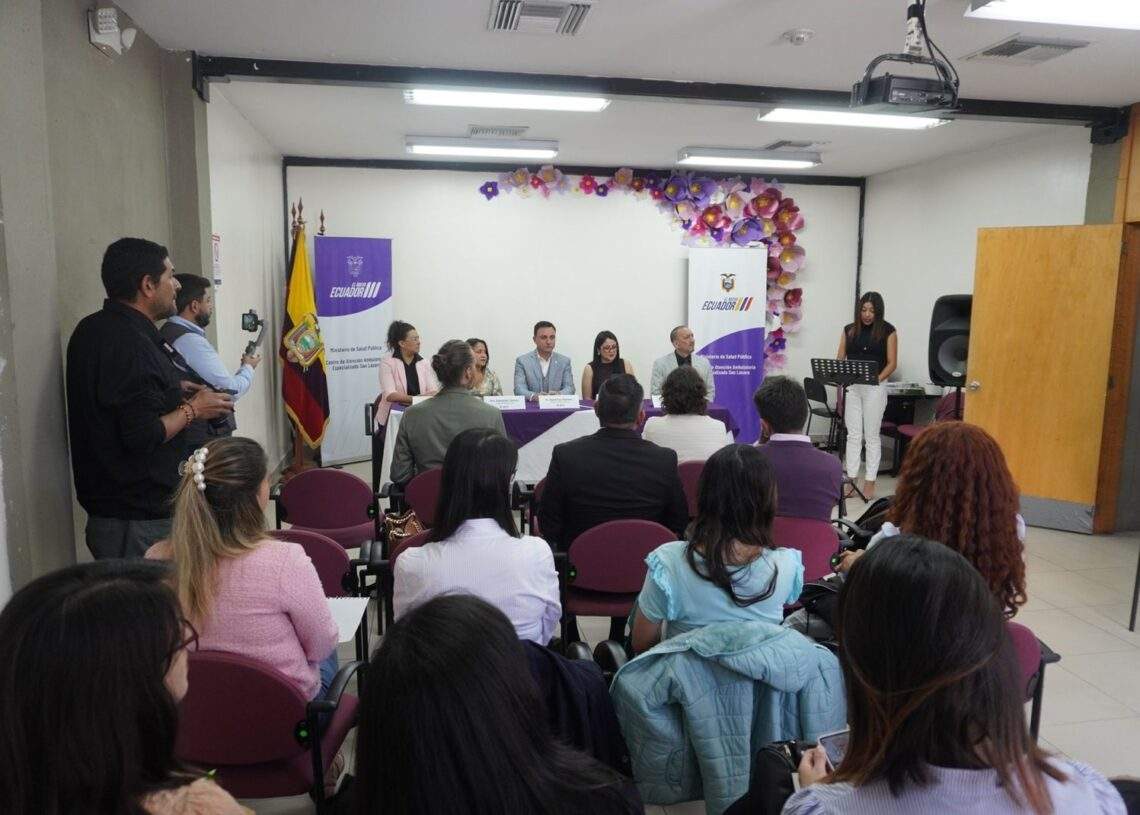On 23, 24 and 25 September, the training ‘Strengthening of the human talent of the Line 171 (option 6) of attention to people going through mental health crisis, problematic drug use and consumption’ organised by the COPOLAD III programme in collaboration with the Ministry of Public Health of Ecuador took place at the San Lazo Community Mental Health Centre in Quito (Ecuador).
The training was carried out by Episteme Social, a COPOLAD III collaborating entity, and by Marta Coronado, an official of the Subdirección General de Adicciones de la Generalitat de Catalunya (Spain) who was mobilised as international expertise due to her management of the Green Line of the Generalitat de Catalunya, similar to the Ecuadorian Line 171 (option 6).
Option 6 of Line 171 was created during the pandemic to provide a national response to mental health and addiction problems. It currently handles about 100 calls per day. Most of the calls end successfully with an appointment for the caller to receive psychological care in a specialised care centre.
The training course was attended by the nine operators of the hotline 171, the hotline coordinators, as well as staff from the San Lázaro centre, all of whom are trained in psychology. The aim of the course was to improve psychosocial skills in the care of people in crisis situations, as well as knowledge about the psychosocial dimension of the use of psychoactive substances and differential approaches in mental health controversies. The trainings were organised on the basis of the values of the COPOLAD Programme and in line with the EU European Drugs Strategy, i.e. a training based on rights, attention to vulnerable populations and from a gender perspective.
One of the conclusions of the training course was that from now on the operators, so called until now, would be called ‘psychologists intervening in crisis situations’. The satisfaction of the trainees was substantial, as evidenced by the overall score of 9.79 out of 10 given by the trainees. In the framework of the South-South cooperation promoted by the COPOLAD III programme, on 21 October, two officials from the Ministry of Public Health of Ecuador in charge of the coordination and operation of the Line 171 option 6 in mental health and consumption of psychoactive substances will make a study visit to Bogota, Colombia. During this visit, they will be able to learn first-hand about the experience of a similar hotline. In the coming months, a training guide on this subject will also be published in the framework of these trainings.






